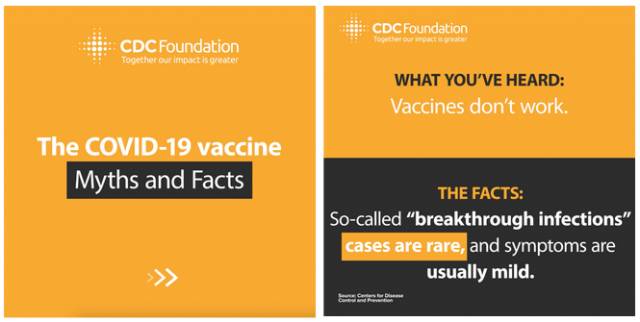You are here
Social Media Aims to Assist Young Adults in Making COVID-19 Vaccination Decisions
Since December 2020, state immunization programs have been running a full court press to vaccinate all COVID-19 vaccine-eligible Americans beginning with health care workers and those most at risk. There has never been a vaccination campaign with the rapid breadth and depth of mobilization in the history of public health. In just nine months, immunization programs have accomplished what it would typically take nearly six years to achieve under regular circumstances in the Vaccine for Children Program.
Despite herculean efforts, parts of the country and certain demographic groups are lagging in vaccination uptake. It comes as no surprise that in these regions and among these populations, hospitalizations and deaths from the spread of the COVID-19 Delta variant have soared once again.
An examination of CDC’s Vaccine Tracker shows the results of a perfect storm of low vaccination acceptance and undeniable consequences in terms of preventable hospitalizations and heartbreaking deaths. The statistics also shine a light on the fact that young adults are not impervious and are suffering severe illness in greater numbers as a result of the spread of the Delta variant.
With the ongoing urgency to mitigate and end the pandemic, the CDC Foundation’s Community COVID Coalition turned its attention to vaccine acceptance. The Community COVID Coalition is an initiative of the CDC Foundation in partnership with the National Governors Association (NGA) and the Association of State and Territorial Health Officials (ASTHO). Launched in June 2020 with support from Facebook, the Coalition’s initial focus was on supporting state communications on effective public health interventions to stop COVID-19 with a focus on contact tracing.
Consistent with the approach used to previously create a library of social media assets focused on contact tracing, the Coalition again partnered with research firm SocialQuest, Inc., to understand the landscape of vaccine hesitant 18- to 24-year-olds in states with the lowest vaccination rates as well as their attitudes and beliefs. The message testing also explored the influence of close relationships to change minds. At the same time and in partnership with digital marketing firm Code3, seven initial creative concepts were tested and an initial round of social media messages in English and Spanish have been created with more to come.
As we make both the message testing results and social media assets available, the Coalition is excited to build upon the partnership and begin a new initiative focused on supporting community-based organizations (CBOs) to use their social media platforms to reach 18- to 24-year-old young adults, and Black/African American and Latino/a populations ages 25 to 39.
The CDC Foundation is currently supporting more than 170 CBOs across the nation to reach specific communities with vaccine messages. The Coalition will provide communications support to this family of CBOs. This support will include researched and message-tested ads designed for Facebook platforms and technical assistance to help strengthen their communications capacity. In addition, the Coalition is adding the Association of Immunization Managers (AIM) to its membership to build linkages between CBOs and their state immunization programs and to facilitate dissemination of the new vaccine resources.
While about 77 percent of Americans ages 12 and older have received a dose of COVID vaccine, this number plummets in some states. To turn the tide on the pandemic, communications campaigns must be launched that are designed to compel hesitant individuals to receive the facts they need to get vaccinated. There remains much work to be done. The Community COVID Coalition is eager to continue this unique public-private partnership with Facebook to help get vaccination facts to those who are receptive to hearing them.
For more information see www.COVIDCoalition.org.

